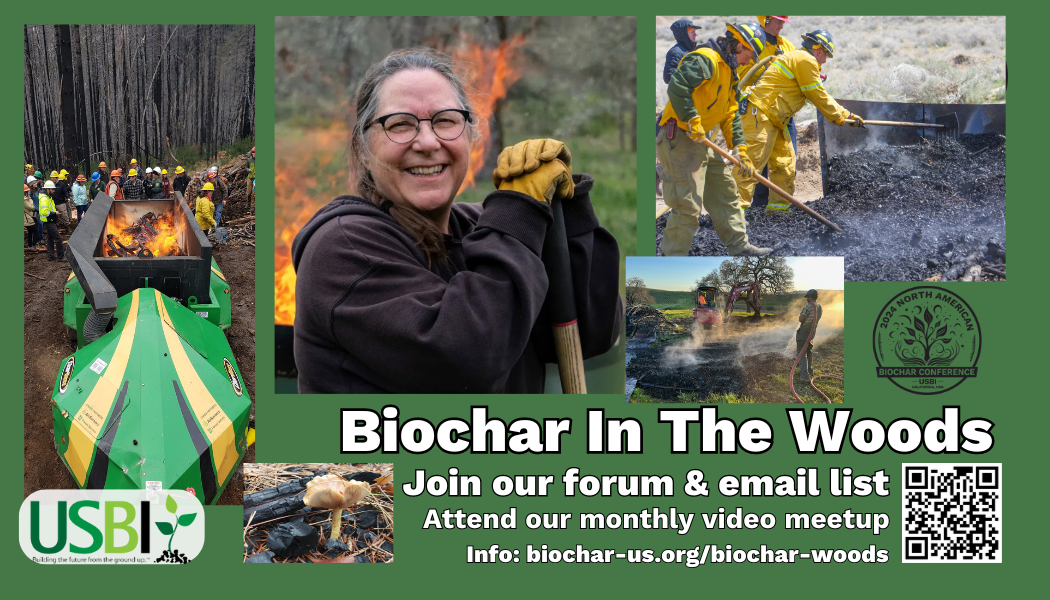
Flame-Cap Kilns Now Permitted in WA State: A Victory for Biochar!
by Korina Stark, Circular Design and Strategy Consultant
Dear biochar enthusiasts,
We are thrilled to share some exciting news with you all: flame-cap kilns are now permitted in Washington State! Thanks to the tireless efforts of advocates and the support of legislators, SB 6121 was signed into law by Governor Jay Inslee on March 26th, 2024.
This is a significant victory for biochar production in Washington, as it will allow residents to make biochar using flame-cap kilns and use this clean, efficient, and affordable method to process the tonnes of woody biomass generated from wildfire prevention & fuels reduction efforts - without the smoke and emissions from the standard practice of open pile burning.
How it began:
Flame-cap kilns have been a subject of debate in Washington State for several years. Opponents expressed concerns about the potential for air pollution from flame-cap kilns, equating them to burn barrels, which are illegal in the state.
SB 6121 was introduced in the Washington State Legislature earlier this year to address these concerns and establish a clear regulatory framework for the use of flame-cap kilns. The bill defines flame-cap kilns as devices used to produce biochar from organic materials and establishes specific requirements for their construction and operation. It also leverages the current permitting pathways of open pile burning.
Efforts to Pass the bill:
The passage of SB 6121 would not have been possible without the hard work and dedication of many individuals and organizations. The fire was started by Elaine Oneil of the Washington Farm Forestry Association soon after she learned about the issue, and guided through the legislative process by Nora Palattao Burnes. Jake Dailey of Rake Force, and myself as a small forest landowner, testified in front of multiple committees to contextualize the issue from the perspective of forestry/agriculture service providers and small forest landowners; many others tirelessly advocated for this bill with emails, calls, and visits to the capitol.
This collective effort to educate legislators and the public about the benefits of biochar and the differences between flame-cap kilns and burn barrels was instrumental in securing the support needed for the bill's passage.
Implications and Aspirations
The passage of SB 6121 is a major step forward for biochar production in Washington State. It will allow residents to produce biochar using a clean and efficient method, contributing to soil health, carbon sequestration, and waste reduction.
Additionally, this new law may pave the way for the development of a thriving biochar industry in Washington State - creating jobs and supporting local economies - and provide momentum to address the cost-prohibitive permitting challenge faced by those who seek to operate air-curtain burners in the state.
The passage of SB 6121 is a testament to the growing recognition of the environmental benefits of biochar and the importance of sustainable practices. I am proud to have been a part of this effort, and I look forward to seeing the positive impacts that this new law will have on biochar production and environmental stewardship in Washington State.
Stay tuned!
Korina Stark
Information on place-based biochar systems can be found on our Biochar in the Woods mailing list, web forum, and monthly webinar series. Details here: https://biochar-us.org/biochar-woods
